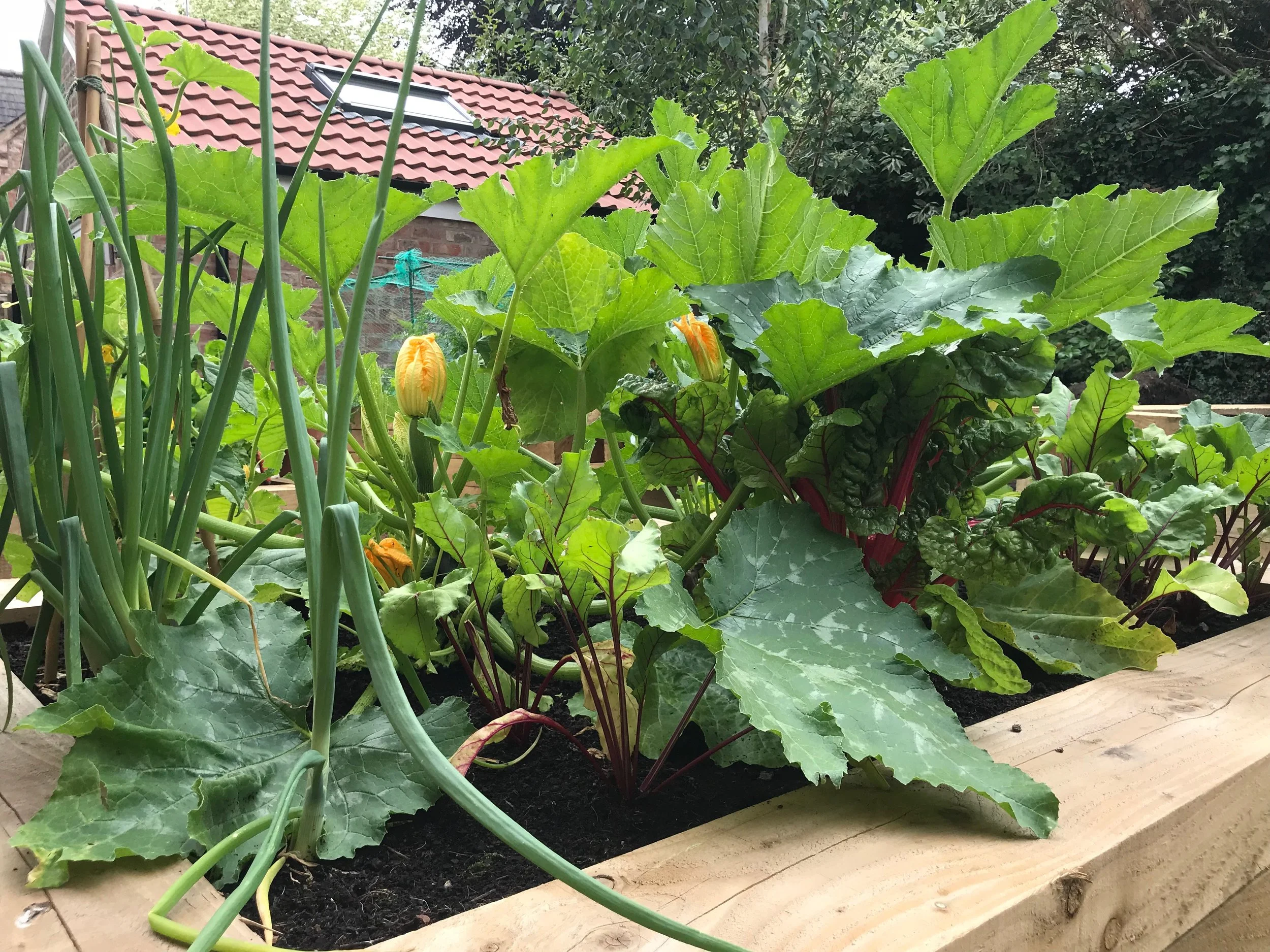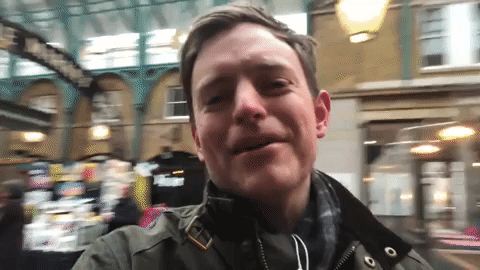My dear friends Matt and Kat are just about to launch their brilliant new book The Forgotten Forest on Kickstarter…
Never Stop Growing
Do You Speak Millennial?
How To Engage Your Audience
Is it time to ditch digital?
We live in a very connected world. Or so we think… Smart phones and social media have made it easier than ever to grow our networks and broadcast our achievements and yet somehow, amidst all the noise, many people are struggling to make an impact. A quick review of my iPhone apps today revealed that I have 704 Facebook Friends, 1040 Twitter Followers and 1106 LinkedIn Connections. That’s a lot of people and I love the interaction that I have with them. However, as the world becomes more digital it is more important than ever that we can create meaningful human connection and don’t over rely on technology to do the job for us.
If you want to create more impact and have more influence at work try ditching your email and picking up the phone instead. Better yet, walk across the office and speak to colleagues face to face. “Compliance culture” has created the proliferation of massive email chains where people are more interested in covering their backs by documenting their interactions than they are in effectively and efficiently solving the problems at hand. What would happen if you got into the habit of pausing before you hit reply to the latest thing in your inbox? Would a more personal response get you a better outcome? How much time could you save if you cut out the email back-and-forth and discussed the issue instead?
In the moment digital can feel like the easiest and quickest option, yet often it simply delays an inevitable human interaction. To really solve meaningful problems we have to connect, to build trust and develop relationships. Verbal conversations whether on the phone or in person allow us to do this. You can’t fully read body language or decipher tone in an email or an instant message, no matter how many emojis you use!
Yet the solution can’t simply be more face-to-face time. In fact, the research suggests that the average employee spends 31 hours a month in meetings they consider a waste of time! Instead we need to think about the quality of our interactions. Do we have a clear intention for the meeting or call, a tangible objective that we can measure success against? Does everyone present need to be there? Is the agenda clearly defined? Two of the most successful strategies we’ve found for increasing productivity are making meetings shorter – 15 minutes or 45 minutes work well instead of the traditional 30 minutes or an hour – and conducting meetings and conference calls standing up . When people know that time is of the essence and they can’t slump in a comfy chair and zone out, it’s amazing how much more energised and driven people become.
In reality digital is here to stay. Whilst ditching our smartphones might seem appealing, they actually bring us major benefits when used in the right way. The most important thing then is for us to stay in control of our tools rather than allowing our tools to dictate our performance. Being a great communicator is all about self-awareness and being strategic. Instead of reacting immediately to a stimulus, pause and make your response a conscious one. However you choose to respond, the more you truly connect the more effective you’ll become.
Take some time out! The importance of connection.
It’s been a hectic few months. I’m not complaining at all. I’ve had the pleasure of training some amazing delegates and speaking at some brilliant events and now it’s time for a rest. I’m taking next week off and I can’t wait! Of course I’m looking forward to a few lie-ins and the thought of not checking my emails is very appealing but I’m most excited about the extended opportunity to connect – with myself, with my loved ones and with my environment. It might sound a bit fluffy but connection is so important for our wellbeing and happiness and it’s a fundamental ingredient for high performance.
It All Starts With You
It may sound selfish, however, the key to being truly connected is time for yourself. If you’re not in touch with your own sense of purpose, your values and your emotions, then it’s impossible to make anything more than a superficial connection with those around you. If you want to function at a higher level, you have to be in deep connection with the things you are trying to achieve. If what you are doing doesn’t make you want to jump out of bed in the morning, then it’s unlikely that you’ll stick to the plan when temptations or opportunities for procrastination present themselves.
Now don’t get me wrong, you don’t have to love every little task you do, you just have to understand how each step you are taking is part of the overall journey you have chosen to embark on. I spent a good chunk of yesterday going through the business accounts. If I’m honest it’s the part of being an entrepreneur that I enjoy least. However, I know that if I want to succeed in my mission of helping people reconnect with the spoken word, I need to have a viable business that makes money and being on top of the numbers is an essential part of that.
Next week I plan to carve out some quality time each morning to focus on the bigger picture and prepare myself for the exciting challenges that lie ahead. I find that the knock on effect of this is that once I’ve had my “thinking time” I can be much more present and connected with my family. I get to really enjoy the time we spend together without getting distracted by the “work noise” that pops into my head. I’m the first to admit that I often find it difficult to switch off – I love what I do – so working in this way allows me to stay connected to all parts of my life by simply choosing where I place my focus. And I don’t just do this during the holidays. Whenever possible I start the day with planning time and some headspace, so that by the time I reach the office or the training room I am ready to hit the ground running.
There’s Always Time
One of the biggest objections I hear when I talk with people about the importance of connection is “I don’t have time”. We tend to wake up in the morning and get straight on the treadmill of life. We spend our work day moving between meetings, phone calls and emails without taking the time to breathe. Not only do we fail to make time for ourselves, we fail to make time for others too. We tend to see our interactions with colleagues and customers as transactional rather than transformational. When we do this we miss a massive opportunity.
The old adage that time is our only finite resource is often overused. What’s vital to remember though is that we are free to choose how we use it. If you had to find 10 minutes in your day to do something of “life or death” importance, you would. Of course you would also have to let something else slip to do it - that goes without saying. So what we’re really talking about is not a lack of available time but our choice of priorities. What value do you place on connection and what are the benefits of making it non-negotiable? It might be easier to have superficial “yes” or “no” conversations with colleagues and team members but what could be gained by going beneath the surface and working for deeper understanding? Getting out from behind your desk at lunchtime and seeing the world around you will create infinitely more opportunities and spark infinitely more ideas than eating a sandwich at your desk hunched over Facebook. We must take responsibility for creating space in our life. No one else can do it for us.
So, whether you need to focus on connecting with your purpose or connecting with those around you I encourage you to take some time-out this week. Are you sure you don’t have 10 minutes?...
Resonance - The Key To Connection
I shed an unexpected tear yesterday. The news of Sir Terry Wogan’s death hit me in a surprising way. He was someone that I respected as a broadcaster but I would never have categorised myself as a “fan”. Whilst I have fond memories of watching Children In Need as a kid, I was never a religious listener to his radio programme and I have only vague recollections of his television chat show. Yet, somehow, without me ever realising it he had connected with me. As I read about his passing, I felt sad. Just weeks before, I had had the same experience on hearing the news about David Bowie and Alan Rickman. A sense of loss, a feeling of grief, a tangible connection to people that I had never met. What was it that had moved me? Why did I have such a strong emotional reaction? I’ve been mulling it over for the last 24 hours and I think it comes down to one thing. Resonance.
If I think of all three men, not only do I see their faces but I can hear their voices. All three had unique and distinct tones that were unmistakably them. Through their sound they were able to connect and that connection bound them to their audience. This might all sound a bit “new age” but the reality is much more scientific. When we speak we are simply sending waves of sound towards our audience, which hit the tiny bones in the inner ear and are then decoded by the listener and interpreted for meaning. All this takes a split second but the impact is much longer lasting. Send boring sound waves and you are likely to be forgotten. Send something more unusual or exciting and your message will land.
We talk of ideas “resonating” with us. On a very basic, animalistic level, I think that means that we literally feel their vibrations. The message is felt in our hearts. So, having a rich, resonate voice is important if you want to really connect with your audience. There’s a reason that they used a soft husky voice on those M&S food adverts for example. If the narrator had a sharp, nasal tone, you would be much less likely to dream about the melt-in-the-middle Belgium chocolate pudding that was appearing on your screen!
Resonance is something that we can develop, some voices have more natural resonance than others but it is a skill that can be worked on. There are simple exercises that you can practice to increase it. However, fundamentally, the trick is to get comfortable with allowing the voice and your message to be heard. Not holding it in – keeping your ideas close to your chest – but being generous and willing to share. I think often we judge the sound that we make. Allowing yourself to be heard can make you feel vulnerable but it is in those moments of vulnerability where you truly connect to your audience. You move past the exchange of ideas and into something more intimate and exciting. Wogan, Rickman and Bowie are all great examples of performers that could take their audience on a journey, who’s unique voices instantly transported us and who’s messages spoke to our emotions.
Terry Wogan’s poignant parting words to the listeners of his final breakfast show in 2009 have been replayed and quoted many times in the last 24 hours. Simple and powerful they spoke directly to the heart. “Thank you. Thank you for being my friend.”… Imagine if all businesses had that level of relationship with their customers… That, my friends, is the power of resonance.
Keep shining
Dominic












